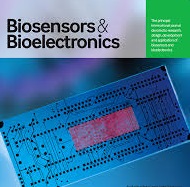
A Ph.D. in Bioelectronics and Biosensors is a research-oriented program that applies electronics, biology, and materials science ideas to the development of devices for monitoring biological processes and disease diagnosis. The program typically lasts 3 to 5 years and covers areas like as sensor design, biomaterials, nanotechnology, signal processing, and bioinformatics. Students do cutting-edge research to develop and improve biosensors for use in healthcare, environmental monitoring, and biotechnology. Admission often requires a Master's degree in bioengineering, electronics, chemistry, or a related subject. Graduates pursue positions in academia, healthcare technology, and research institutions, helping to enhance diagnostic and treatment technologies.